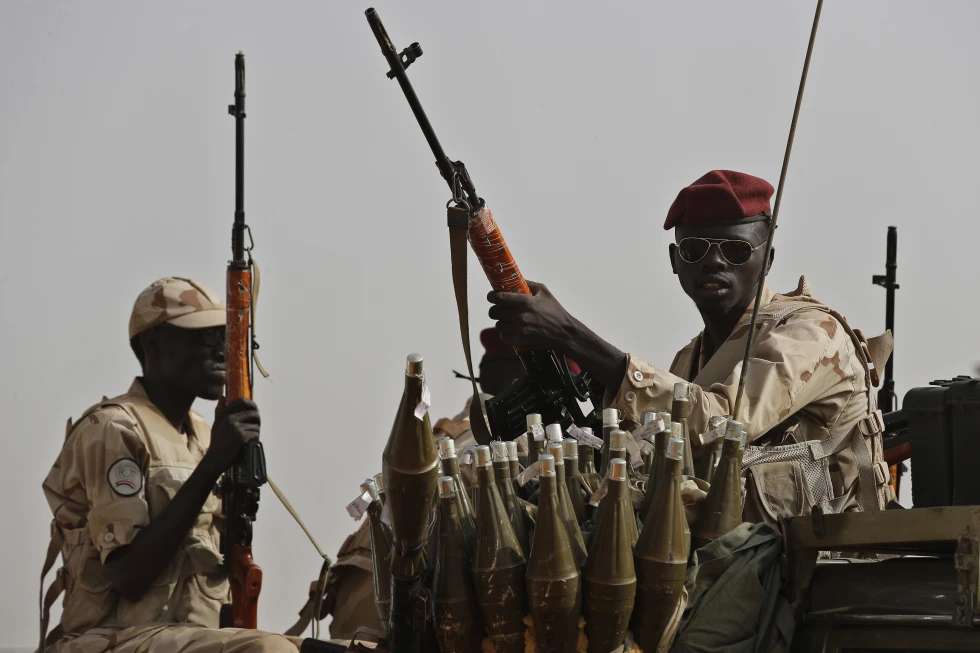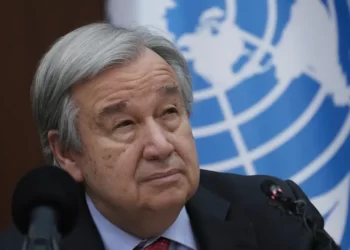Sudan’s military has secured a crucial victory by breaking a yearlong siege on the strategic city of Obeid, reopening vital supply routes, and strengthening its position in the nearly two-year-long conflict against the Rapid Support Forces (RSF), officials confirmed.
Brig. Gen. Nabil Abdullah, a military spokesperson, announced that government troops had successfully expelled the RSF from its final stronghold in White Nile province. The development represents a significant setback for the paramilitary group, which has been engaged in fierce battles against the military since April 2023.
The conflict erupted after long-standing tensions between the Sudanese Armed Forces and the RSF escalated into full-scale war, devastating major cities, including the capital, Khartoum. The United Nations and international human rights organizations have accused both sides of committing war crimes, including mass rapes and ethnically motivated killings, particularly in Darfur.
Obeid, the capital of North Kordofan province, is a critical transportation and commercial hub. The city also hosts a large airbase and the military’s 5th Infantry Division, known as Haganah. For over a year, RSF fighters maintained a blockade on Obeid, disrupting the region’s railway network, which connects Khartoum to Nyala, the capital of South Darfur province.
According to Abdullah, military forces successfully reopened the road leading to Obeid, ensuring that much-needed humanitarian aid and military supplies could flow freely once again. Sudan’s Finance Minister, Jibril Ibrahim, hailed the breakthrough as a “massive step” toward lifting the RSF siege on El-Fasher, the capital of North Darfur, which remains under threat.
Since September 2024, Sudan’s military has launched a series of offensives to regain control of key territories. The campaign initially focused on reclaiming Greater Khartoum, which includes Khartoum, Omdurman, and Bahri.
The military has since retaken several strategic locations, including its headquarters, and is closing in on the Republican Palace, which RSF forces stormed in the early hours of the war in an attempt to eliminate Sudanese military chief Gen. Abdel-Fattah Burhan.
Ongoing RSF Setbacks And Cholera Outbreak
The RSF has suffered repeated defeats across the country. It recently lost control of Wad Medani, the capital of Gezira province, and other strategic areas, including Sudan’s largest oil refinery. The military’s latest advances have tilted the balance of power in its favor, but a resolution to the conflict remains elusive.
Despite international mediation efforts and diplomatic pressure — including a U.S. assessment that the RSF and its allies are committing genocide — fighting continues with no peace settlement in sight. In response to its territorial losses, the RSF and its allies recently signed a charter establishing a parallel government, raising fears of a potential split in the country.

Amid the ongoing war, Sudan is grappling with a deadly cholera outbreak that has now spread to Rabak, the capital of White Nile province, according to provincial health officials. The outbreak initially struck the city of Kosti before spreading to Rabak, with devastating consequences.
Between Thursday and Sunday, 68 people died from cholera, while more than 1,860 others were diagnosed with the disease, according to the health ministry. Health workers have launched an anti-cholera vaccination campaign in the two cities, with officials reporting that 67% of the target population has already been reached.
The outbreak has been largely attributed to contaminated drinking water after RSF forces attacked Kosti’s water supply facility. The government has since restored the facility as part of efforts to contain the disease.
Cholera, a highly contagious bacterial infection, causes severe diarrhea and dehydration, which can be fatal if left untreated. The World Health Organization (WHO) warns that the disease spreads through the ingestion of contaminated food or water.
Cholera outbreaks are not uncommon in Sudan, particularly in conflict-affected areas. Between July and October last year, more than 600 people died, and over 21,000 were infected, primarily in the country’s eastern regions, where millions of internally displaced people are struggling to access clean water and medical care.
As the war rages on, Sudan’s humanitarian crisis continues to worsen, with no clear resolution in sight. The latest military advances may have given government forces the upper hand, but the conflict’s toll on civilians remains catastrophic.
READ ALSO: Manasseh Awuni Hit With GHS 21M SML Lawsuit






















